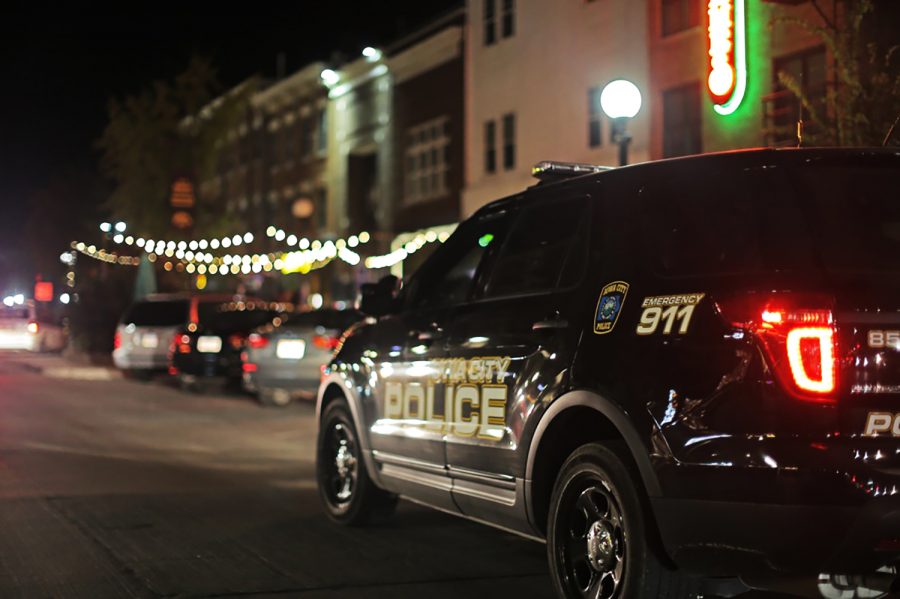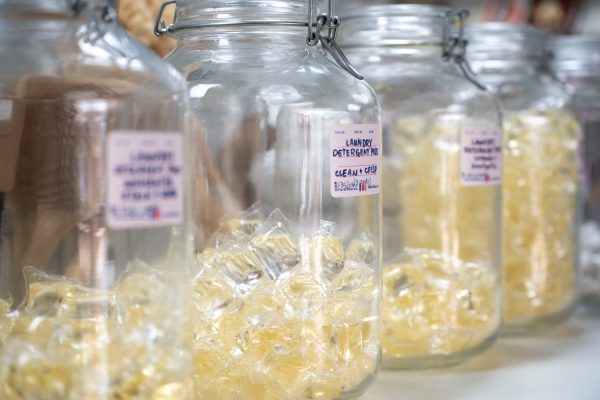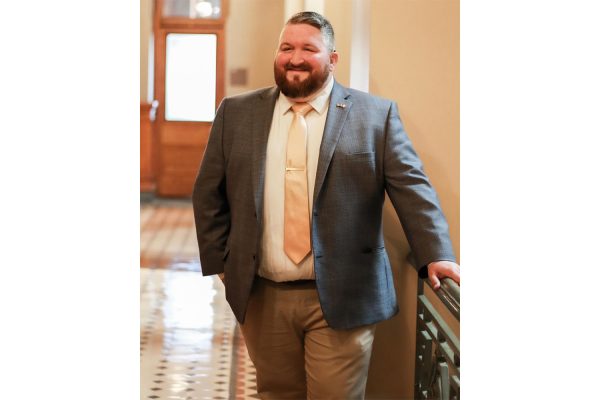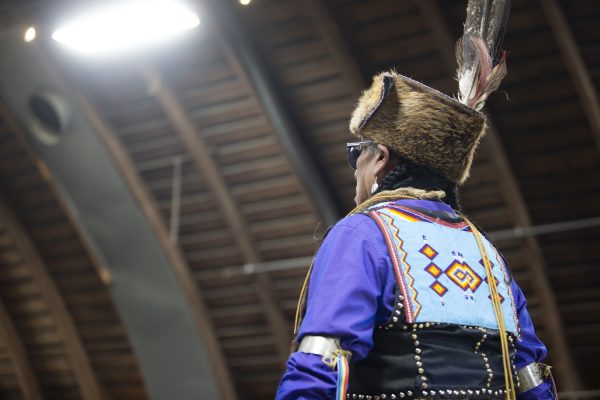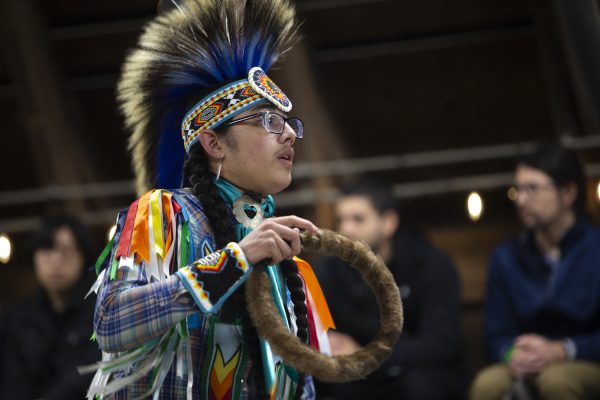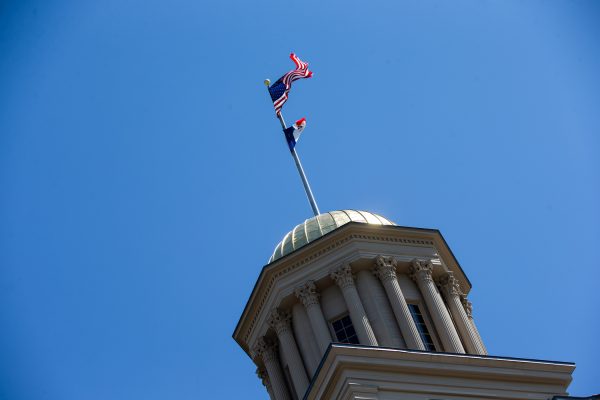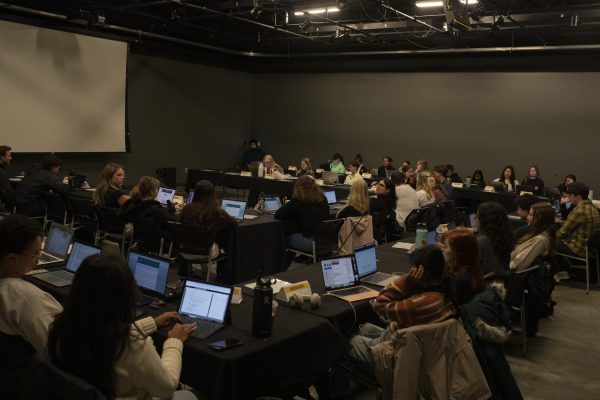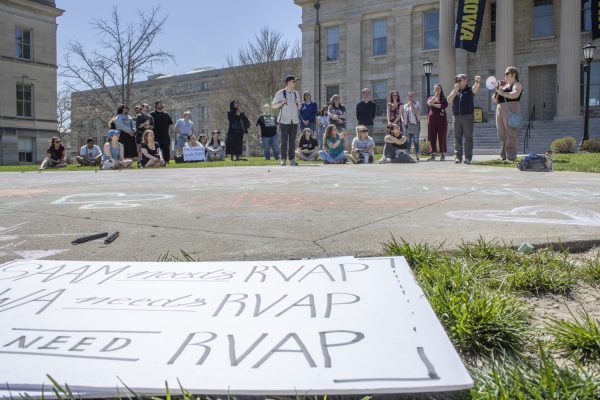Student organizations urge University of Iowa to cut ties with local law enforcement
After Iowa City police and the Iowa State Patrol used tear gas, pepper spray, and flash-bangs to break up protests, UI Undergraduate Student Government and other student organizations have called for the university to end contracts with ICPD, the Iowa State Patrol, and Coralville police.
June 6, 2020
University of Iowa and Iowa City leaders pledged Friday to review policing procedures after the Iowa City Police Department, under the direction of the Iowa State Patrol, used tear gas, pepper spray, and flash-bangs on peaceful protesters headed toward Interstate 80 Wednesday night.
The actions of law enforcement on Wednesday prompted a response from the UI Undergraduate Student Government and 57 UI student organizations Friday morning, who called for the university to end contracts with ICPD, Coralville Police Department, and the Iowa State Patrol.
The letter included a link to a petition, signed by more than 10,000 people as of Saturday morning, calling for the UI to cut ties with ICPD.
In a joint message with city leaders and signed off by eight UI administrators, including President Bruce Harreld, the university called the use of tear gas Wednesday night “unacceptable.” Administrators committed to participating in a review of Iowa City police by the Iowa City Community Police Review Board.
Iowa City Community Police Review Board Chair Monique Galpin said the review board would determine how to implement Campaign Zero’s #8CantWait measures — suggested methods for law enforcement to use before resorting to violent tactics. Such methods include banning chokeholds and shooting at moving vehicles.
Galphin added that City Councilor Janice Weiner is the review board’s liaison to the Iowa City City Council, so Galpin is confident that more active action will be taken.
Galpin said the board does not typically see the results of their decisions made in reviewing a citizen’s filed complaint, so she is hoping there can be more transparency between the police department and the community after reviewing ICPD.
“A lot of the time after reviewing a chief report or footage, we make a recommendation to the chief who has to implement it,” Galpin said. “We don’t know the consequences of our decisions after that point. We do not see if there was more training or discipline. Anyone can access the reports and see our decisions, but seeing the follow through right now is a question mark.”
Galpin confirmed that no reports have been received from community members relating to protests in Iowa City over the past week.
The university also pledged in their message to require certain diversity training for the UI Department of Public Safety and conduct a department audit, including a climate assessment of interactions with communities of color. Administrators said they would stand side-by-side with the Iowa City City Council to work toward law-enforcement reform, and that they would create a focused partnership with USG and Graduate and Professional Student Government to initiate reform.
“We hear you, we support you, and we stand with you,” the statement said. “We have a long way to go, but the journey has begun and we need your energy, passion, and voices.”
Iowa City Mayor Bruce Teague condemned the ICPD’s use of chemical irritants on protesters Wednesday in a Thursday afternoon address, and vowed to make changes to police and other city agencies, including adding diversity training.
In the statement released Friday, university leaders said the incidents on Wednesday prompted calls from members of the campus community to cut ties with the ICPD and other local law enforcement agencies, but did not mention whether the UI had made a decision that considered doing so.
Friday’s statement from Harreld and other university leaders noted that 75 percent of university students live off campus and more than half of faculty and staff also live in Iowa City.
Peaceful protests began in Iowa City on June 1 following the death of George Floyd, a 46-year-old black man who was killed after Derek Chauvin — a Minneapolis police officer — knelt on his neck for over eight minutes.
After calls from University of Minnesota Student Body President Jael Kerandi, the UM announced it would limit ties to the Minneapolis Police Department — including ending contracts with the department for additional law enforcement for football games, concerts, and other large events.



